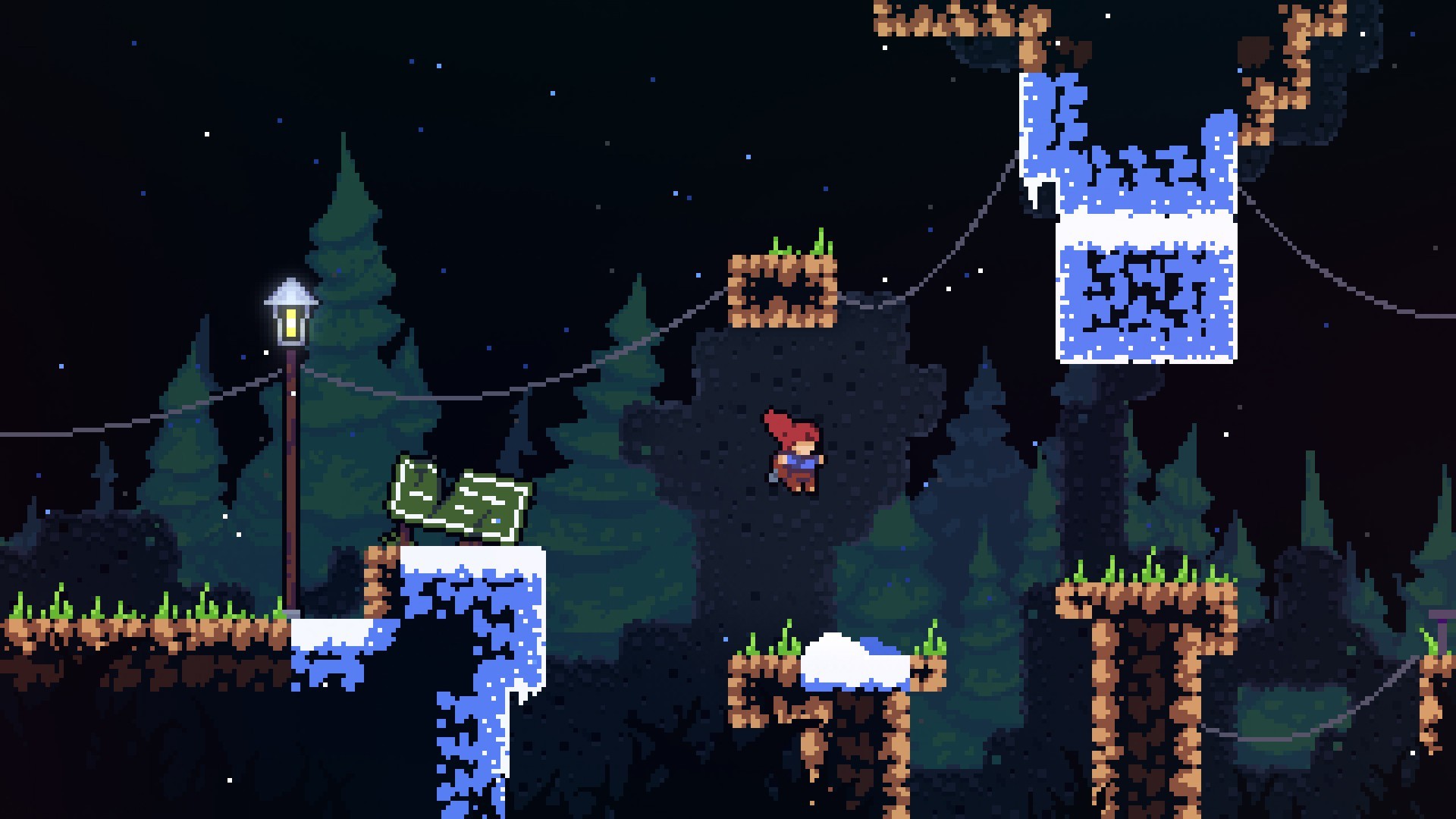Life is a mountain surrounded by smaller mountains that we are constantly climbing. We are challenged with a plethora of problems in our day to day: trying to do good in school, being cool enough to make friends and figuring out what the meaning of our lives is.
Video games, while commonly seen as an escape from the hardships of life, have become a powerful tool to explore the difficulties of reality, especially when it comes to independent (indie) games. Marvels like “Undertale” feel like a warm hug that has you making friends with witty and charismatic monsters. “Omori” tackles the complex topic of suicide and depression with role-playing game mechanics and charming characters. Yet, one that stands out is none other than “Celeste,” a brilliant platformer that has players scaling the beautiful Celeste Mountain. It was the 2018 winner of “Best Independent Game” and “Games for Impact.”
Developed and published by indie studio Maddy Makes Games, “Celeste” centers around Madeline, a young woman riddled with depression and anxiety who resolves herself to climb Celeste Mountain. Throughout her climb, a manifestation of her fears and doubts amalgamate into an evil version of herself referred to as “A Part of You” or Badeline, and Badeline proves to be a powerful adversary to Madeline’s goals. In controlling Madeline, the player is tasked to clear the platforming obstacles ahead of them, making friends and meeting foes along the way.
The game is built on a simple foundation in which Madeline has access to a jump and a multi-directional dash. This fundamental basis is then innovated upon each level — gems that Madeline can break to enact an additional dash, momentum from mechanical platforms thrusting and propelling Madeline and feathers that transform her into a ball of light that flies freely. Every level increases in difficulty, but so too does the number of tools and ways that each puzzling dilemma can be solved. While the player will die (a lot), the deaths of Madeline are expected and the game is designed to quickly restart the player at the checkpoint, preparing them to try once more.
The setting of Celeste Mountain is serene and divine, enveloping players in a setting that, while dangerous, is ultimately dazzling. The ephemeral beauty of the dazzling gems, the mystical orbs that evoke beauty and the warm ombres of the sunsets are the perfect backdrop to the intimidating challenges the game sets forth. This is only amplified further by its majestic soundtrack, produced by Lena Raine, who was also responsible for many tracks from games such as Minecraft and Guild Wars 2.
Indeed, intimidating is also a perfect way to describe Madeline’s boss battles. While most of the game revolves around pure platforming with no enemies chasing you, the few designed boss fights are truly frightening in the forms of a corrupted, insecure hotel proprietor chasing you around as well as Badeline’s many encounters with you. Badeline, here, is a key character that keeps players on their toes, taking on multiple forms that chase you, throwing laser beams at you and trying to discourage you as much as she can with her dialogue. Yet, this truly becomes the highlight of the “Celeste” experience insofar as despite the difficulty of these challenges, they were always fair.
With all of these components creating powerful gameplay, the one element of “Celeste” that resonated with players the most is Celeste’s battle with herself, representative of her struggle against Badeline. They constantly confront each other and through these meetings, we understand how Badeline not only reflects the worst of Celeste but the player’s own worst selves — their insecurities, doubts and hesitation that stop them from climbing their mountain. And as much as Madeline tries to escape, destroy or forget about Badeline, her worst self never leaves and plagues her. So when Madeline finally realizes that the only way to overcome the mountain is to reconcile with Badeline and take care of her, the conflict between the two becomes a holistic allegory for life. It shows that we need to take care of all of ourselves — even the ugly and pathetic parts.
All of these pieces make “Celeste” the perfect game to spotlight for this year’s Mental Health Awareness Month. It is an experience that encourages players to push through challenges and believe in themselves. And while it doesn’t provide a clear message on what the meaning of life is or how to overcome all of your problems, its internal message shines; no matter what, everyone is capable of anything and everyone is deserving of self-love.









